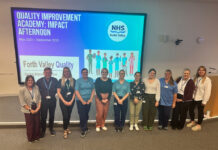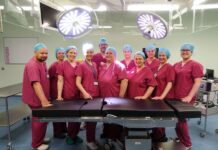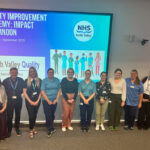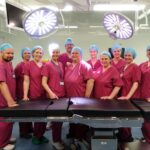Lead Consultant Dermatologist Dr Colin Morton, speaking at a recent virtual event on healthcare innovation, outlined ambitious plans to achieve a quick diagnosis for skin cancer by 2025.
Using the latest technology, the aim is to create a data bank of skin images to help identify melanoma within 25 minutes and enable speedy treatment.
Cancer remains one of the leading global causes of death, and skin cancer is among the most common types; melanoma is the most frequent cancer killer in young adults in Scotland. It also has a major impact on health services as diagnosis and management of suspected skin cancer represents over 50 per cent of a specialist dermatology service workload, and around one in five GP consultations concern skin disease.
Dr Morton explained: “Since the start of the pandemic many people have delayed going to their doctor because of a fear of catching coronavirus. In the case of skin cancer, this continues to be a worrying trend.
“The five-year survival rate for someone with a melanoma that is caught early is approximately 95 per cent. If a melanoma is not caught early, the five-year survival rate can drop to approximately 50 per cent. Catching skin cancer at an early stage is therefore vital, and comprehensive, personalised treatment must start with an accurate, thorough diagnosis.
“Achieving ‘25 by 25’ is undoubtedly ambitious, but we believe the greatest opportunity to improve patient survival lies in innovation through collaboration. Technology holds the power to transform skin cancer care with faster, more reliable diagnosis – and, most importantly, to make a significant difference to patients’ lives.”
The use of advanced technology in dermatology is being spearhead by a national consortium led by NHS Scotland and supported by the Chief Scientist Office, who will applying new technology in a way that has not been done before by bringing together the skills and expertise of NHS, industry, and academia. This includes work to develop a new national database of skin cancer images that will underpin Artificial Intelligence training and testing and provide better information for patients







